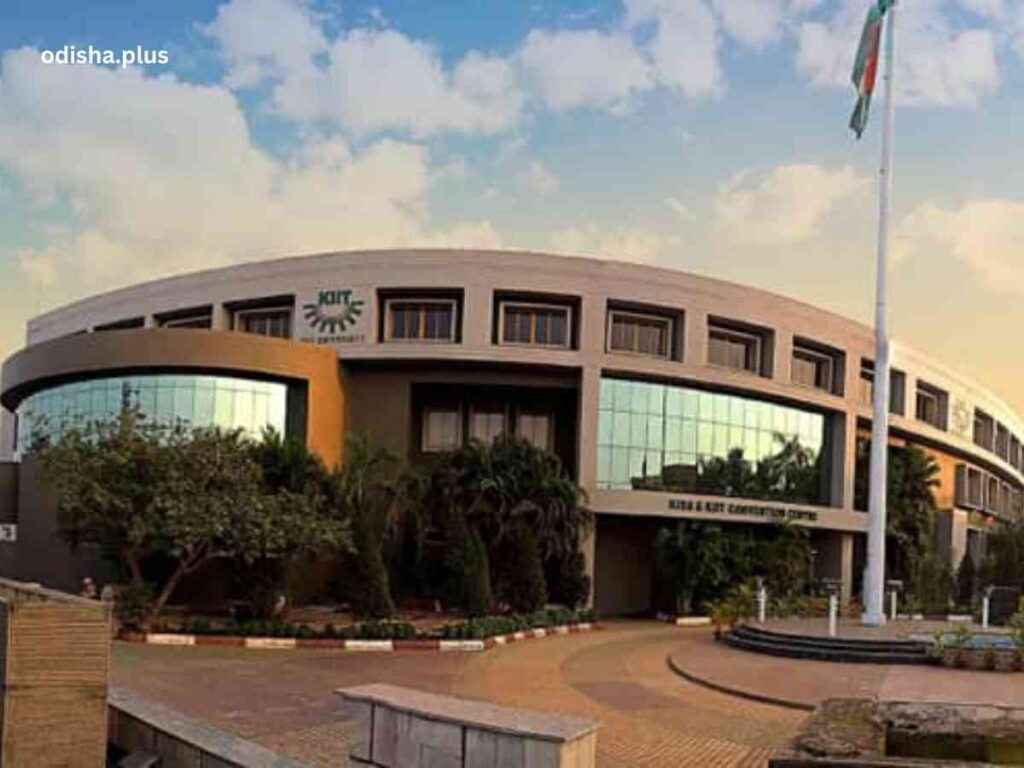A Nepalese third-year B.Tech student was found dead at KIIT University, Bhubaneswar on February 16, 2025
Bhaskar Parichha

The Occurrence
The recent event at the Kalinga Institute of Industrial Technology (KIIT) in Bhubaneswar has resulted in the tragic death of a 20-year-old Nepali student, Prakriti Lamsal, who reportedly took her own life in her hostel accommodation. This incident has led to significant protests and heightened diplomatic strains between India and Nepal.
Prakriti Lamsal, a third-year B.Tech student from Nepal, was discovered deceased on February 16. Preliminary investigations indicate that she may have experienced harassment from another student.
In response, Nepali students organized protests on campus, claiming that the university administration failed to address their harassment complaints. Consequently, over 500 Nepali students were instructed to vacate the campus amidst escalating tensions.
Nepal’s Prime Minister KP Sharma Oli has stepped in, cautioning that Nepal may cease issuing no-objection certificates for students intending to study in Odisha if a fair resolution to the situation is not achieved.
The Aftermath
The government of Odisha has established a committee to examine the situation. Numerous officials from KIIT have been apprehended for their alleged mistreatment of Nepalese students.
In the aftermath of the incident, many Nepalese students chose to return to their home country. There have been demands for judicial investigations into both the death and how KIIT managed the situation. This issue has sparked political debates in the Odisha Assembly in India as well as in the Parliament of Nepal.
Government Action
Following the unfortunate event involving a Nepali student, the Odisha government has begun to take a proactive stance in safeguarding the welfare of students at KIIT. The Odisha Police have detained several individuals, including a student accused of involvement and members of the university staff, about the death and the ensuing violence directed at Nepali students.
A comprehensive fact-finding committee has been established to conduct a thorough investigation into the incident and to seek justice for the student who lost their life. Additionally, the Higher Education Department has set up a round-the-clock help desk aimed at assisting the safe return of students impacted by the incident, safeguarding their academic pursuits, and ensuring their overall well-being.
The government has organized transportation for Nepali students who were compelled to vacate the campus amid protests, enabling them to return to their classes if they choose to do so. The state government is in regular communication with both the Indian federal authorities (MEA) and the Nepalese authorities to tackle issues related to the safety of international students.
These actions reflect a dedicated initiative by the Odisha government to respond to urgent concerns while also striving for sustainable solutions to improve student safety at KIIT.
All Eyes on Committee
All attention is currently focused on the high-level committee and the recommendations it will present to the Odisha government. The efficacy of the high-level fact-finding committee established by the Odisha government to examine the incident at KIIT can be known only after the report is made public.
Typically, fact-finding committees prove effective when they gather evidence and establish a historical account of events, which aids in comprehending the circumstances surrounding the incident. By pinpointing those responsible and proposing measures against them, these committees can facilitate justice for the victims. Recommendations aimed at preventing similar occurrences in the future may result in significant systemic reforms.
It is crucial for the activities at Kalinga Institute of Industrial Technology (KIIT) to return to normal operations as soon as possible. This resumption is vital not only for the students who are eager to take their examinations and receive their certificates but also for the overall integrity and reputation of the institution. Any prolonged interruption in the functioning of the institute could have far-reaching consequences that extend beyond the campus.
What Next?
Firstly, the immediate impact on students is significant. Delays in examinations can hinder their academic progress, affect their future educational opportunities, and create uncertainty regarding their career paths. Students rely on timely assessments to move forward in their academic journeys, and any disruption can lead to increased stress and anxiety among the student body.
Moreover, the economic implications of such interruptions cannot be overlooked. The education sector is a substantial contributor to the state’s economy, generating considerable revenue through tuition fees, research funding, and associated economic activities. A halt in operations at KIIT could lead to a decline in enrollment, which would not only affect the institute’s financial stability but also have a ripple effect on local businesses that depend on the student population, such as housing, food services, and retail.
Additionally, Bhubaneswar’s reputation as a prominent center for higher education in eastern Odisha is at stake. The city has worked hard to establish itself as a hub for academic excellence, attracting students from various regions. Any disruption at a key institution like KIIT could tarnish this reputation, making it less appealing for prospective students and faculty. This could lead to a decline in the quality of education and research in the region, ultimately affecting the long-term growth and development of Bhubaneswar as an educational center.
In conclusion, the resumption of normal operations at KIIT is not just a matter of institutional functioning; it is a critical factor that influences the academic success of students, the economic health of the state, and the overall standing of Bhubaneswar in the realm of higher education. All stakeholders must work collaboratively to ensure that the institute can operate smoothly and continue to fulfill its mission of providing quality education.
(The author is a senior journalist and columnist. Views expressed are personal.)
























